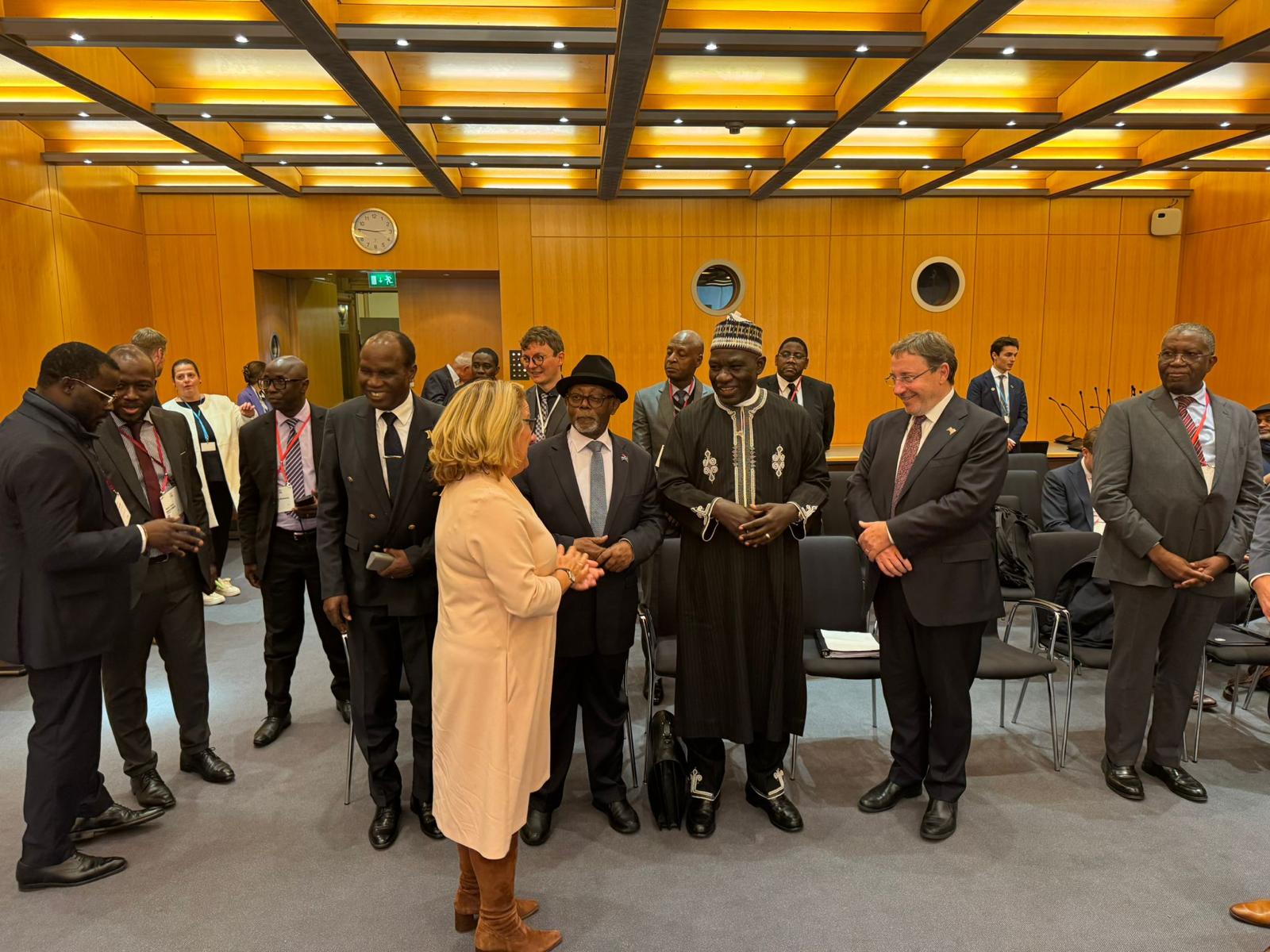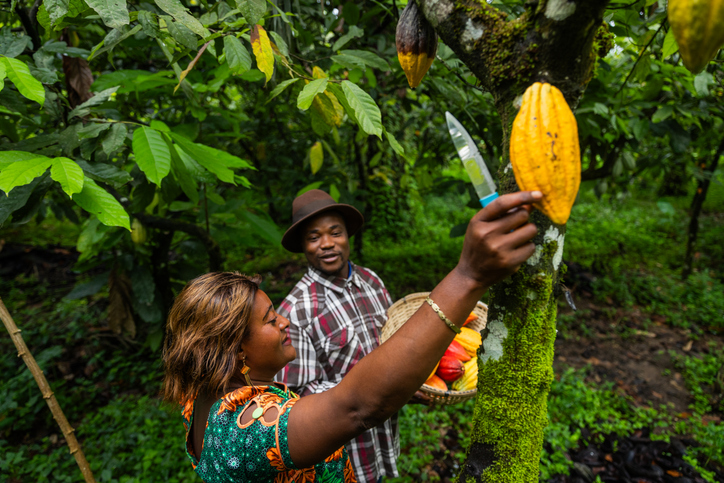Financial ambitions to protect forests commensurate with sustainable economic development needs of the World's 5th largest cocoa producer and its vision to become Africa's "agricultural breadbasket".
8 October 2024 - Hamburg Sustainability Conference, Germany - The Federal Minister for Economic Development and Cooperation (BMZ), HE Ms. Svenja Schulze Scholz, on behalf of the Central Africa Forest Initiative (CAFI), and Cameroon Minister of Economy, Planification and land use Planning HEM Alamine Ousmane Mey signed on 7 October a Ministerial statement to launch the CAFI- Cameroon partnership, in the presence of UNDP Administrator Achim Steiner.
Following the launch, the Letter of Intent itself was signed today by Minister Mey, UK Minister for Development AnneLiese Dodds and BMZ State Secretary Jochen Flasbarth.
Through this, CAFI and the Government of Cameroon seek to jointly mobilise US$ 2.5 billion dollars by 2035 to ensure Cameroon's transition to green economic growth. The CAFI Fund, a multi-partner fund managed by the MPTF Office, has already committed US$60m for the start-up phase up to 2027.
In line with the objectives of the 2021 Glasgow Leaders' Declaration on Forests and Land Use and the emergence objectives set out in the 2030 National Development Strategy, Cameroon is committed to deforestation- free agriculture by 2035. The partnership signed today will help Cameroon, a country with strong agricultural potential and over 30 million hectares of forest, to significantly reduce deforestation by 2029, with a benchmark of 110,000 hectares of deforestation per year over the period 2016-2022.
Read the Ministerial Statement here
Read the Letter of Intent here
Reconciling Cameroon's economic growth with forest conservation
Through this Letter of Intent, which is both ambitious and comprehensive, the Government of Cameroon undertakes, on the basis of the mobilisation of substantial funding, to act on three main areas and milestones to be achieved over the period 2025-2027:
i) Sustainable intensification of agriculture within the non-permanent forest estate, in order to ensure national food security and meet growing regional demand for products such as cocoa and coffee, while reducing demand for new land and incentives to deforest for agricultural production.
Among the milestones to be achieved is that at least 300,000 producers (250,000 more than at the time of signing) should be able to access various direct agricultural subsidy mechanisms - such as electronic vouchers, co-financing of business plans, co-financing of agro-ecological transition plans - by the end of 2025.
ii) Preservation and sustainable management of the permanent forest estate, which covers almost 18 million hectares, or more than 39% of the national territory.
iii) Cross-sectoral and multi-level governance of natural resources - to ensure territorial coherence, the attractiveness and economic competitiveness of the country and improve the well-being of its population. To achieve this, the parties undertake to reach clear milestones such as the development of national plans for agro-industry, mining-metallurgy-siderurgy and forestry-timber, that are integrated and consistent with the objectives of the CAFI-Cameroon partnership.
Effective steering by the Ministry of the Economy to ensure a multi-sectoral approach
In addition to anchoring its partnerships at the highest level, one of the key features of the CAFI approach has always been to ensure that partnerships are steered and monitored by cross-sectoral ministries, which have the mandate to arbitrate on different land uses. In 2021, the Presidency of Cameroon has mandated the Ministry of Economy, Planning and Land Use Planning (MINEPAT in French) to coordinate the partnership with CAFI.
No fewer than 8 ministries as well as the National Fund for the Sustainable Development of the Cocoa and Coffee Sectors (FODECC in French) are fully committed through the Letter of Intent.
Reducing deforestation while ensuring economic development: the example of cocoa
The first project financed under this partnership, approved by CAFI's Executive Board in June 2024, symbolises one of the partnership main objectives in deforestation-free agriculture.
As the world's fifth-largest cocoa producer and a major coffee grower, Cameroon is committed to producing sustainable cocoa and helping its farmers to comply with European regulation on deforestation-free products (EUDR in French) requirements. Cameroon's 700,000 coffee and cocoa producers, the majority of whom are smallholders, face major challenges to comply with transparency requirements relating to geolocation. To support them in their agro-ecological production of coffee and cocoa, Cameroon has developed a unique financing tool, the FODECC, supported by the European Union, which manages a direct financing mechanism for cocoa and coffee producers, via subsidies. Known as the ‘Guichet producteurs’ (or Producers' Window), this system is financed to the tune of €12 million a year from domestic funds via levies on cocoa and coffee exports.
The Cameroonian government's aim is to scale up the scheme to support all 700,000 Cameroonian households dependent on these 2 sectors for exports to Europe, and ultimately to support the 2.7 million Cameroonian households dependent on agriculture in their transition to deforestation-free agroecological practices.
CAFI's US$ 20 million project in Cameroon, implemented with the International Fund for Agricultural Development (IFAD), aims to strengthen the capacities of the FODECC, increase national coffee and cocoa production by supplementing the Producers' Window mechanisms, and increase and diversify internal and external financial resources, in particular via payments for environmental services.


